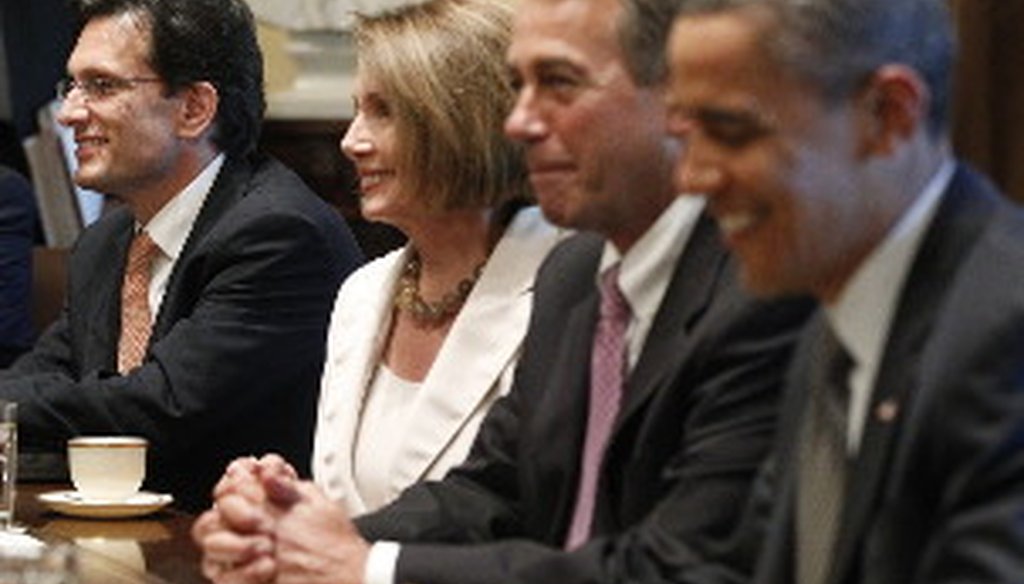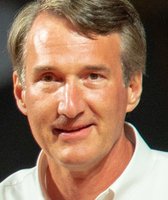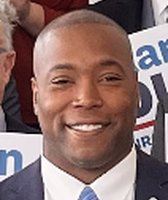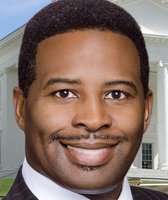Stand up for the facts!
Our only agenda is to publish the truth so you can be an informed participant in democracy.
We need your help.
I would like to contribute

Political leaders dsicuss debt reduction at a recent White House meeting. From left, House Majority Leader Eric Cantor, R-Va., House Minority Leader Nancy Pelosi, D-Calif., Speaker John Boehner, R-Ohio, and President Barack Obama.
It’s all about the debt ceiling. If Congress doesn’t raise the $14.3 trillion cap by August 2, the U.S. risks default on its loans. The economic consequences would be staggering.
PolitiFact has been watching the debate closely. As the deadline nears and the partisan impasse over tax increases and spending cuts remains, we thought we’d review a few major claims by political leaders that have been weighed on the Truth-O-Meter.
"Right now we are spending at an all-time high; 25 percent of our GDP is being spent on the federal government. But our revenues are at an almost all-time low of 15 percent (of GDP)." --U.S. Sen. Mark Warner, D-Va., April 17, 2011.
Uncle Sam took in $2.16 trillion in fiscal 2010, which ended Sept. 30. Revenues equaled 14.9 percent of gross domestic product -- the measure of the total of size of the U.S. economy for a given year.
Since 1940 average annual revenues have equaled 17.4 percent of GDP, and during the last 30 years the average has been 18 percent, according to records from the White House and U.S. Treasury Department. Revenue has not been below 15 percent of GDP since 1949 and 1950.
Washington spent $3.46 trillion in the 2010 fiscal year, down slightly from $3.52 trillion in the 2009 budget year. The 2010 figure was 23.8 percent of GDP, and the 2009 figure was 25 percent of GDP.
Those numbers are above historical averages. Since 1940, federal spending has averaged 20.5 percent of GDP. Since 1981, the average is 21 percent.
Only during World War II did expenditures climb above Warner’s 25 percent threshold. It peaked at 43.6 percent in 1943 and 1944 as the U.S. financed much of its global war efforts with debt. We rated Warner’s statement True.
"Put simply, less government spending equals more private sector jobs." -- House Majority Leader Eric Cantor, D-Va., March 4.
Total federal spending has only decreased a few times in the past 70 years, and the only large drops came at the end of World War II and the Korean War. Private sector jobs increased after both of those wars, but the gains were driven by many factors, including the return to a peacetime economy and the demobilization of millions of soldiers.
During large stretches of the 1980s and 1990s, government spending grew at a slower rate
than the overall economy, and large job growth occurred. But economists warned us there is
not a direct link between spending policies and job growth -- many factors come into play.
Cantor may be right with his prescription of lower spending to spur higher job growth. But he goes too far when he asserts a cut equals more private sector jobs. No one knows for sure. The congressman is presenting an economic theory as established fact. We rated his claim Half True.
Jobs soared after Bill Clinton raised taxes on the wealthiest Americans to the level President Obama now seeks. -- President Barack Obama, July 6, 2011.
In 1993, Clinton raised the top marginal tax rate to 39.6 percent -- the same level Obama would like to return to -- and the U.S. saw strong job growth in the ensuing years. But Obama’s suggestion of a cause-and-effect relationship between the two events is dubious, according to the cross-section of economists we spoke to. There were many other economic factors that played a larger role in job growth, they said. However, most agree that the tax increases did not appear to hinder job growth, and that's significant given the dire warnings some Republicans have issued about Obama's plan to return the top tax rate to Clinton levels.
When Obama says we saw job growth in the 1990s even as Clinton raised taxes, he's right. But to the extent that he's suggesting raising taxes created job growth -- as he appears to be when he says "we should go with what works," he goes too far. PolitiFact national rated his claim Half True.
"The American people don’t want us to raise taxes." -- House Speaker John Boehner, R-Ohio, June 24, 2011.
As with most polling, the answers you get depend on how you ask the questions. Boehner's office refers to a mid-June Bloomberg poll in which U.S. adults were asked what the best approach is for "growing the economy and creating jobs." The top answer,with 55 percent, was "Spending cuts and tax cuts will give businesses more confidence to hire." Asked whether they’d be willing to pay higher taxes to reduce the federal deficit, 61 percent said no, 36 percent said yes.
But a number of other surveys show substantial support for raising taxes on people who make more than $250,000. PolitiFact national found majorities of 72 percent, 64 percent, and 59 percent. (Those are from April polls by ABC News/Washington Post, McClatchy-Marist, and USA Today/Gallup, respectively). On whether corporations pay enough in taxes, Gallup found that 67 percent said they pay too little.
A July poll from Quinnipiac University asked: "Do you think any agreement to raise the national debt ceiling should include only spending cuts, or should it also include an increase in taxes for the wealthy and corporations?" In this case, 67 percent favored including tax increases, while 25 percent favored spending cuts only.
In June, a Reuters/Ipsos poll found 46 percent, favored a combination of cuts and tax increases, compared with 26 percent who said cuts alone and 13 percent who said raise taxes. An ABC/Washington Post poll from April found 59 percent favor a combination of spending cuts and tax hikes.
On the other hand, when you don't give people the option of both, they favor spending cuts over tax increases by significant margins. A Reuters/Ipsos poll from March that found people favored spending cuts over tax increase by 56 percent to 30, and a CBS News/New York Times poll from January that put it at 62 to 29.
Bottom line: polls indicate that people don't like taxes, but they are often okay with increasing specific taxes or closing loopholes. Additionally, when it's time to make hard decisions about the budget, people favor a balanced approach of spending cuts and tax increases. Finally, folks tend to favor tax increases for other people -- such as the wealthy or corporations -- if not themselves. PolitiFact national rated Boehner’s statement -- that Americans oppose tax increases -- as Barely True.
"I cannot guarantee that (Social Security) checks will go out August 3rd" if the debt ceiling is not increased." -- President Barack Obama, July 12.
Critics likely have a point when they say Obama is playing up the risk to the most sympathetic potential victims -- Social Security recipients, 23 percent of whom live in households that depend on the retirement system for 90 percent or more of their income. While it's not a certainty that the Obama administration could prioritize cutting checks to seniors, there's a reasonable shot that the administration could do it.
On the other hand, doing so would likely cause a lot of collateral damage to other American creditors, federal workers, students, Pentagon vendors and countless others -- and could also hamper the broader economy at a particularly sensitive time. The president is probably justified in saying that the possibility of an un-raised debt ceiling jeopardizes Social Security checks -- after all, it hasn't happened before, so no one knows for sure. But Obama probably has tools at his disposal to avoid the worst-case scenario for seniors that he expresses concern about. Acknowledging that there are a lot of uncertainties, PolitiFact national rated his statement Half True.
Our Sources
PolitiFact Virginia, Mark Warner says federal spending is near all-time high, relative to GDP, April 22, 2011.
PolitiFact Virginia, Eric Cantor says less government spending equals more private sector jobs, March 16, 2011.
PolitiFact, Obama claims job rate soared after Clinton raised taxes, July 7, 2011.
PolitiFact, John Boehner says they don’t, but polls on taxes show many do, June 29, 2011.
PolitiFact, Barack Obama said Social Security and other federal checks may not go out Aug. 3 if the debt ceiling is not increased, July 13, 2011..






















































